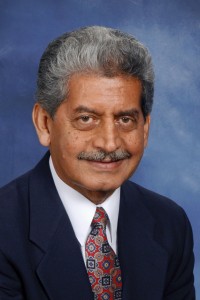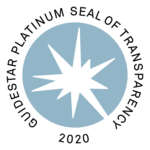My Vision
Narendra P. Sharma, PhD, Founder and Chair
 After more than three decades at the World Bank, I retired and moved to Hilton Head Island. I soon recognized that I still had something to offer in helping the poor. I visited one of the low-income neighborhoods, the Oaks Apartments (approximately 115 units, many occupied by more than one family), tucked in the middle of Hilton Head Island, and came to the realization that I did not have to go overseas to fight poverty. Despite widely held perceptions of Hilton Head Island as a community of wealthy retirees living in gated communities, poverty was right here in my own backyard. This experience was a game changer in my life.
After more than three decades at the World Bank, I retired and moved to Hilton Head Island. I soon recognized that I still had something to offer in helping the poor. I visited one of the low-income neighborhoods, the Oaks Apartments (approximately 115 units, many occupied by more than one family), tucked in the middle of Hilton Head Island, and came to the realization that I did not have to go overseas to fight poverty. Despite widely held perceptions of Hilton Head Island as a community of wealthy retirees living in gated communities, poverty was right here in my own backyard. This experience was a game changer in my life.
People – mostly Hispanics and African Americans – were living in this crime-ridden neighborhood with no sense of community or connectedness with the rest of Hilton Head. Unemployment was high; families struggled to survive on incomes below the poverty threshold; children were not meeting school standards in math and language arts, many were not staying in school, or graduating on time. I found that families had no health insurance or health care; obesity and poor nutrition were rampant. My experience in the Oaks neighborhood ignited my passion to help these people. I realized that I did not have to go to Africa, Latin America, or Asia to practice development. My mantra became “teach them how and where to fish.”
My career at the World Bank was educational. I saw the impact of development; I saw affluence as well as poverty and suffering; and I saw the difference that education was making in people’s lives. I met many interesting individuals, including Mother Theresa. She made an indelible impression on me and her focus on love, compassion, and caring for others continues to have an impact on me. I met others too who were doing outstanding work in their quiet and humble way without any publicity. From all of these people I learned that one must have clear vision, a sense of mission, and core values. More importantly, one cannot lose sight of the end game, i.e., making a difference in the lives of the people you serve.
Toward the end of my career at the World Bank, I realized that we needed more innovative solutions on a larger scale to tackle poverty. Our approaches were too traditional, focusing on “one size fits all” with expectations of quick results. These projects/programs relied too much on capital and hard investments and less on soft investments that build relationships and trust, as well as listening to people and involving them in defining priorities, developing solutions that are sustainable and replicable, and empowering them and creating opportunities. I also realized that development interventions often result in untended impacts of increased bureaucracy and dependence without eradicating poverty. I realized that we needed to think outside the box to develop new solutions.
Neighborhood Outreach Connection (NOC), created in 2008, incorporates the lessons that I have learned about good practices over more than three decades of development experience worldwide. NOC’s mission is to help the poor and those who are vulnerable through its core programs including education (preschool, after school, and adult education), health services, and workforce development. NOC, in partnership with other local agencies, brings valuable services, resources, and technology to people within these neighborhoods. Education is NOC’s flagship program, and the primary beneficiaries are children and women.
NOC started with just five children using borrowed space in the apartment of a neighborhood family. After five years of operation, we have grown to more than 300 children. More than 1500 individuals benefit from our periodic health screenings, and more than 350 adults have benefited from our adult education. NOC has a strong presence in the neighborhoods that we serve, a proven development approach, and a business model that collectively are making a difference in the lives many people, especially the children, living in low-income neighborhoods. We connect, listen, and involve people from these neighborhoods to develop solutions. Our work is drawing attention from people in other areas.
In its second five-year phase of growth and expansion, NOC is ready to replicate its model beyond our local community. My vision is to create an even playing field in low income neighborhoods so people can achieve the “American Dream”.
